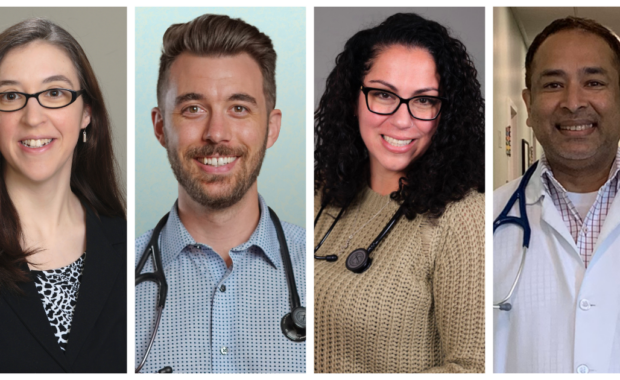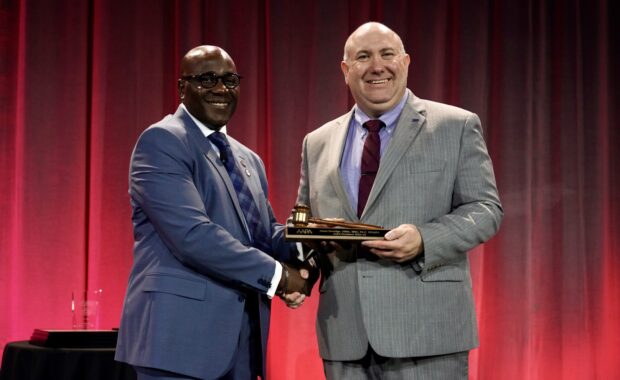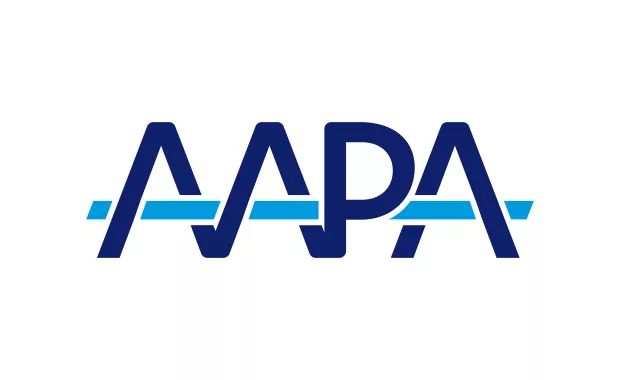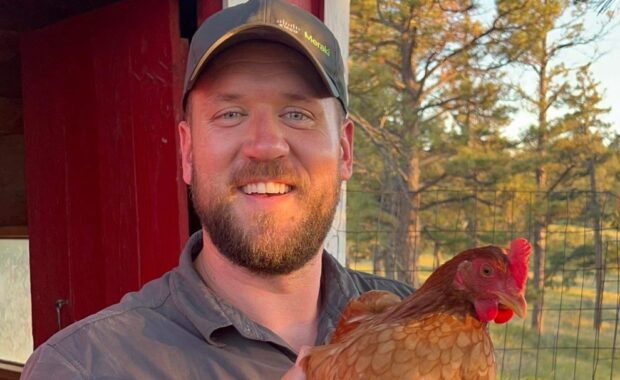Carl Frizell Advocates for Justice, Equity, Diversity, Inclusion
PA Frizell’s goal is to create safe spaces and help all students, faculty, and staff reach their own goals
January 19, 2024
By Jennifer Walker
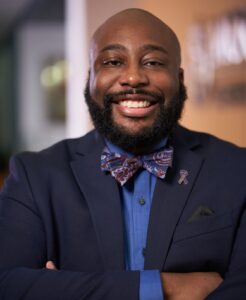
When Carl A. Frizell, DMSc, MSPAS, PA-C, talks about his four years as an educator, he is clear that his teaching style with his students has remained the same, even as he has subsequently taken on faculty and staff positions in PA programs in three states. At each institution—located in Georgia, Alabama, and Tennessee—Frizell, who is passionate about justice, equity, diversity, and inclusion (JEDI), has focused on providing students with quality and equitable education so they can give the best care to their patients. This includes creating secure spaces for students, faculty, and staff, and offering access to resources that will help each person reach his, her, or their goals.
“People have various needs in order to be successful and lead happy lives,” said Frizell, who received the 2022 New Faculty Award from the Physician Assistant Education Association (PAEA). “It’s important to recognize the differences of students, faculty, and staff and to ensure they feel safe and are able to contact providers or leadership for any type of support they may need.”
For example, Frizell, who is neurodivergent and particularly interested in neurodiversity as part of JEDI work, encourages the use of noise-cancelling headphones and distraction-free environments for neurodivergent individuals who experience sensory overload. These simple resources promote equity and can help everyone achieve their goals.
As an educator, Frizell, who has also been involved in intentional mentoring throughout his career, teaches his students to create the same safe spaces for their patients. He also encourages students to be educators themselves, taking their patients’ learning styles into account—a teaching method he uses in the classroom that can ultimately lead to better outcomes in clinical settings.
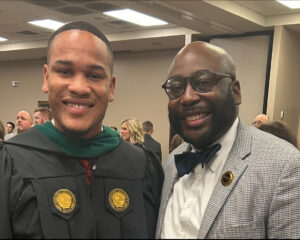
At Meharry Medical College in Nashville, Tennessee, Eboni Carroll, who is a second-year student in the PA program, praises Frizell—who has been her professor in many classes, including physical examination and documentation, as well as clinical lab medicine and medical imaging—for teaching his students to become providers who champion justice, equity, diversity, and inclusion. “We have learned to honor our patients through inclusive language and [to be] culturally aware while practicing cultural humility,” said Carroll. “His impact and reach in the classroom will extend to the quality patient care we provide.”
Although Frizell comes from a family of educators, including his mother, father, and sister, he never considered a career in education for himself. Then he had a pivotal interaction with a PA student from University of Alabama at Birmingham (UAB) who shadowed him for a day. At the end of the shift, she told Frizell she learned more from him than any other PA because he took the time to explain things to her.
“In oncology, it can be a whole new language [in terms of] how to approach patients and also explain the chemotherapies, the side effects, and the medicine,” said Frizell, who holds a Master of Science in Physician Assistant Studies from UAB and a Doctor of Medical Science from the University of Lynchburg in Virginia. “I try to make sure to explain as much as possible so students are comfortable talking to patients. The experience with this student made me realize that education is something I could possibly do.”
Building Values as an Educator
In 2019, Frizell made the shift into education. He has been a faculty member and administrator in several PA programs, where he mainly taught clinical medicine. As a professor who focuses on quality and equitable education, Frizell places prominence on learning styles and brings content experts to his classroom to talk about their specialties or provide different perspectives on healthcare.
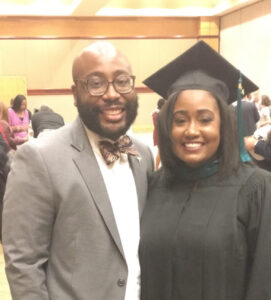
In regard to learning styles, Carroll said that Frizell provides audio, visual, and hands-on resources about topics he covers in the classroom. “If the audio doesn’t click in class, he sends a visual later. And if the visual doesn’t click, there’s a lab component. He really caters to our different learning styles.” Frizell also encourages students to be clinicians who are mindful that people learn best in different ways. “He teaches us that one of the biggest ways to get patients to maintain compliance is to teach them based on their learning styles,” she added.
Carroll, who has a background in clinical research in ophthalmology, head and neck cancer, and emergency trauma, has also learned that creating safe environments where patients feel heard, seen, valued, and understood is a necessity to providing equitable care that can also lead to better adherence. As a clinician, she will take into consideration social determinants of health and resources in the community when developing treatment plans—lessons she learned in Frizell’s classroom.
In his classes, Frizell also brings in content experts, including an orthopaedic PA who talks about his specialty and provides tips on reading imaging. Frizell has also invited a friend from his hometown in Mississippi to talk about her experience receiving care for diabetes in a rural community. She shared that the education provided to her made her think the disease was not serious. As a result, she had complications later in life related to diabetes, including a lower limb amputation.
“If patients aren’t aware of some of the negative outcomes that can come with not doing what they’re supposed to do, there might be some consequences,” Frizell said. “My friend was able to stress to the students the importance of ensuring that patients understand what is being taught to them so they will have the best outcomes.”

Focusing on Intentional Mentoring
Frizell has been passionate about intentional mentoring throughout his adult life. “Representation matters,” he said. “Students can see there are individuals who look like them in various fields.”
During his time at UAB, he was a mentor with the Blazer Male Excellence Network, a program that provides resources and support to freshman African American/Black males, and BLUEprint CONNECT, an initiative that connects students from unrepresented backgrounds in medicine to mentors who have similar backgrounds. After becoming a PA, Frizell continued to mentor others through EDGE-PA (Empowering Diversity, Growth, and Excellence in the PA profession), the National Society of Black PAs, and ThePAC: Physician Assistants of Color.
As a mentor, Frizell—who also works with people from other races and ethnicities with whom he has commonalities, such as growing up in a rural community—stresses that the journey to success is not straight. He will even provide a visual: He writes “journey” and “success” on a board and draws squiggly lines around the words. Frizell shares his curvy path to becoming a PA, and he tells mentees that they can find their own winding route to reaching their goals.
As an educator and a mentor, Frizell offers ample insight for PAs on how to be equitable providers. But the main lesson he wants to instill is to actively listen to patients. “That is the biggest thing,” he said. “Listen to your patients and ensure they are being seen and heard. That’s more impactful than any type of medicine you can practice.”
Jennifer Walker is a freelance writer in Baltimore, MD. Contact Jennifer at [email protected].
You Might Also Like
Kathryn Reed Makes Her Mark on the PA Profession
2023 PA Student of the Year Advocates for Change
2023 Diversity Award Recipient is a Change Agent Focused on Representation and Health Equity
Major Mark Latta Focuses on Transformation
Thank you for reading AAPA’s News Central
You have 2 articles left this month. Create a free account to read more stories, or become a member for more access to exclusive benefits! Already have an account? Log in.
